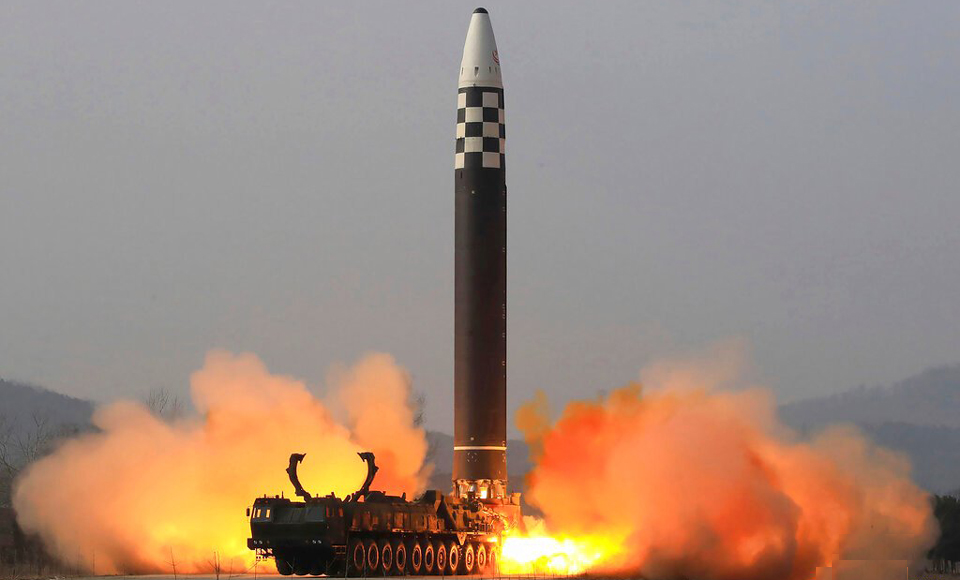
SEOUL, March 30, 2022 (BSS/AFP) - North Korea faked the launch of what
analysts have dubbed its "monster missile" last week, Seoul's military said
Wednesday, adding that the test was, in reality, likely the same
intercontinental ballistic missile Pyongyang fired in 2017.
North Korea last Friday claimed to have successfully test-fired a Hwasong-
17 missile -- a long-range ICBM that analysts say may be capable of carrying
multiple warheads -- which it first unveiled at a military parade in 2020.
But South Korea's defence ministry told AFP that Seoul and Washington have
now concluded that the launch was actually of a Hwasong-15, an ICBM that
Pyongyang test-fired in 2017.
"US and South Korean intelligence has determined that what was fired on
March 24 was a Hwasong-15," the defence ministry official told AFP.
Both ICBMs are potentially capable of hitting the mainland United States.
Seoul and Tokyo had separately confirmed at the time that the March 24
missile had flown higher and longer than any previous test -- but analysts
later pointed to discrepancies in North Korea's account.
The false announcement was likely an attempt by Pyongyang to compensate
for a failed launch on March 16, when a missile, which analysts said was
actually the Hwasong-17, exploded shortly after launch.
According to Seoul-based specialist website NK News, debris from the
failed test fell in or near Pyongyang as a red-tinged ball of smoke zigzagged
across the sky.
"Pyongyang residents must have been shocked" by the failed launch, and it
may have affected public opinion of the Kim regime, lawmaker Ha Tae-keung of
the conservative opposition People's Power Party (PPP), told reporters.
North Korea's state media -- Rodong Sinmun and KCNA news agency -- did not
report on the failed launch at the time.
They typically carry reports on successful weapons tests within 24 hours
of launch, often with photographs.
But the March 24 launch was trumpeted in state media, with KCTV releasing
a slick video purportedly showing the giant missile being successfully test-
fired. Analysts have pointed out discrepancies in the footage which may
indicate parts of the March 24 launch were faked.
- 'Propaganda value' -
The isolated country's economy is reeling from UN sanctions over leader
Kim Jong Un's weapons programs and a two-year-long self-imposed Covid
blockade.
"Not only does the Kim regime derive pride and legitimacy from its nuclear
and missile programs, it portrays building military strength against external
threats as moral justification for domestic economic suffering," Leif-Eric
Easley, a professor at Ewha University in Seoul, told AFP.
The "successful" launch as portrayed in state-controlled media has
significant "propaganda value" for the Kim regime, he added.
Analysts have warned that North Korea will likely launch a military
reconnaissance satellite and conduct tactical nuclear warhead tests later
this year.
On Monday, Pyongyang's state media reported that its leader Kim Jong Un
had vowed to build up "overwhelming" and unstoppable military power.